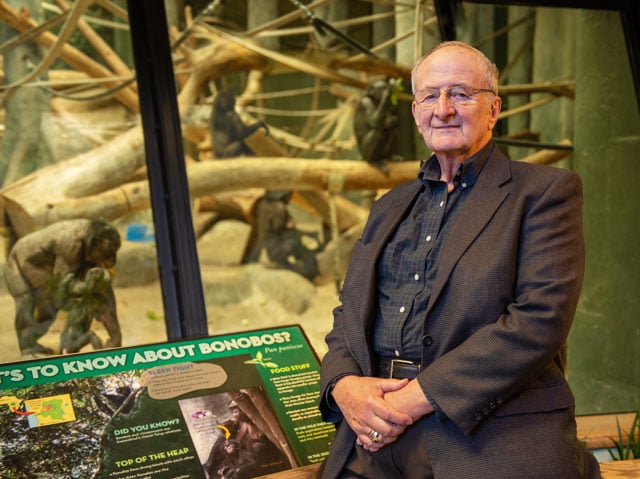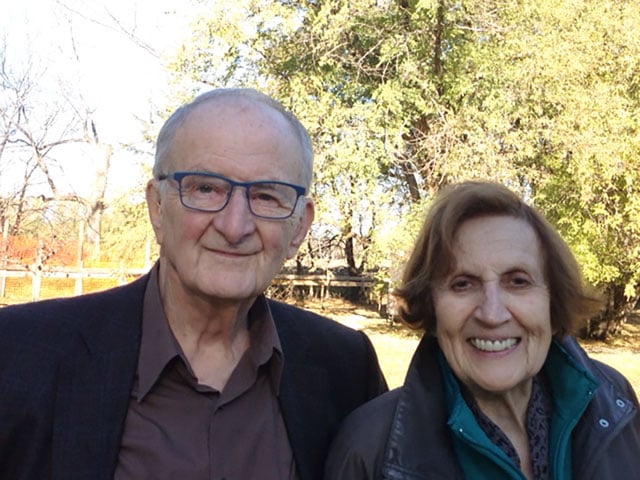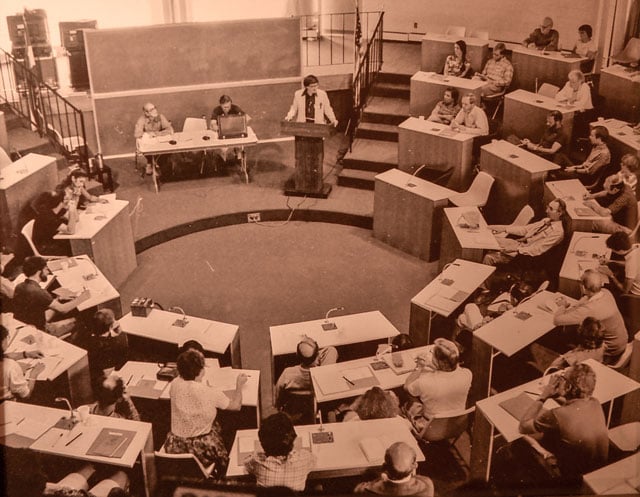Emeritus Professor of Psychiatry and Behavioral Medicine, Medical College of Wisconsin, Harry Prosen worked in the field for over 60 years, including chairing two departments of psychiatry and serving as president of the Canadian Psychiatric Association. A life member of a select group of 500 Distinguished Life Fellows of the American Psychiatric Association, Harry was also psychiatric consultant to the Bonobo Species Preservation Society, and assisted those working with one of the largest collections of captive bonobo primates in the world at the Milwaukee County Zoo.
Harry obtained his M.D. in 1955, his M.Sc. in 1957, and his Diploma in Psychiatry in 1959 — all from Canada’s University of Manitoba. He had specialist standing in psychiatry in three countries — Canada, the United States and England, and around the time of his presidency of the Canadian Psychiatric Association, Harry also chaired, for six years, the Specialty Committee in Psychiatry of the Royal College of Physicians and Surgeons of Canada. He also served as Chair of the Royal College Examining Board in Psychiatry.
As former Head of the Department of Psychiatry at the University of Manitoba and Chairman of the Department of Psychiatry and Behavioral Medicine at the Medical College of Wisconsin until late 2003, Harry was responsible for the development of two departments of psychiatry and, for this work, was listed in the 2005-2006 America’s Registry of Outstanding Professionals.
Harry was continuously involved in the teaching of psychiatry and in clinical work with patients, with special emphasis on inter-generational issues in families, particularly on empathy and empathic deficits. Much of this work originated in studying variations of the life-stages of humans, then developing an inter-generational approach to psychiatric treatment. His 1972 paper The Remembered Mother and the Fantasized Mother has been regarded as an influential work. Some of his early publications focused on non-verbal communication and also variations in facial features under different emotional circumstances. He developed a particular interested in adolescents and psychotherapy.

Harry’s interest in empathy prepared him for his work with primates, in particular bonobos who are thought to be the most empathic of all primates. He has, as mentioned above, worked alongside primate experts at the Bonobo Species Preservation Society and staff at the Milwaukee County Zoo in their study of bonobo culture and development. He had also undertaken numerous consultations within the United States and other parts of the world on psychological and other problems in primates (especially bonobos) and other species. Recently, the rehabilitation of a very disturbed young bonobo, named Brian, by Harry and his colleagues generated substantial publicity, including a story in The Atlantic, as well as appearing in Laurel Braitman’s 2014 book Animal Madness. Harry also featured Jo Sandin’s Bonobos: Encounters in Empathy (2007) on the Milwaukee County Zoo’s rare collection of bonobos (the largest group of captive bonobos outside the Democratic Republic of Congo, their native habitat).
Since 2005, Harry had been a noted advocate of Australian biologist Jeremy Griffith’s treatise on the human condition. In 2014 Harry wrote the Introduction to Jeremy’s book FREEDOM: The End Of The Human Condition.
Harry wrote over 70 books, monographs and articles, reviewed over 30 books and delivered over 60 presentations at various conferences. He was a peer-reviewer for the American Journal of Psychotherapy.

Selected awards and positions
- Fellow, The American Association for the Advancement of Science
- Fellow and Committee Member, The Royal College of Physicians and Surgeons of Canada
- Fellow of the American College of Psychiatrists
- Fellow of the Royal College of Psychiatrists, England
- Past President, Canadian Psychiatric Association
- Distinguished Life Fellow and Committee Member, The American Psychiatric Association
- America’s Registry of Outstanding Professionals (2005–2006)
- Member, American Board of Psychiatry and Neurology
- Member, American Society for Adolescent Psychiatry

Harry Prosen lecturing in the late 1970's